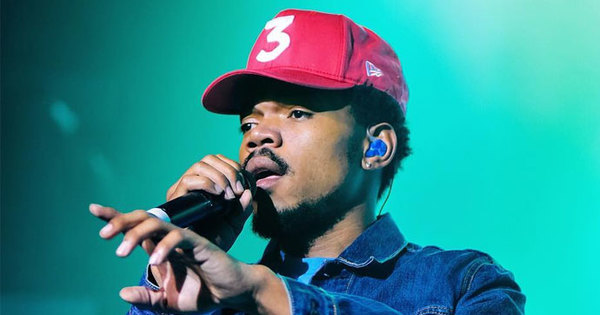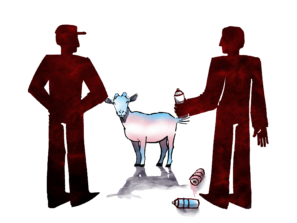
CHnace

In his song “Finish Line,” Chance sings, “I’ve been getting blocked just trying to make songs with friends, labels told me to my face that they own my friends.” With lyrics like this, one would think that the music industry would not be particularly fond of the artist. However, as many of Chance’s hits have topped the charts, the Recording Academy was forced to change its previous rules that prevented independent artists from being awarded, allowing Chance the Rapper’s most recent album, “Coloring Book,” to become the first album to win a Grammy without having sold any music.
He is a musical revolutionary, changing the way artists create, produce and release their music. None of Chance’s songs are available on iTunes, and he is not signed to a record label. Ever since the release of his first album in April 2012, all of Chance’s music can be downloaded through SoundCloud, which allows his songs to be freely accessed by anyone and, thus, lets his music to reach a wider audience.
His transparency, willingness to call out corporations and labels, and tendency to make music his way is what makes him such a threat.
He was, however, criticized when he partnered with Apple Music upon the release of “Coloring Book.” He made a deal with the company that allowed the album to be streamed exclusively from Apple Music for two weeks, and then it would become available to the public. This enraged many fans, who saw this deal as Chance “selling himself out” to the music industry.
Chance took to Twitter to clear things up. “That was the extent of my deal, after 2 weeks it was on SoundCloud for free,” he tweeted. “ I needed the money and they’re all good people over there.” A few minutes later, he tweeted: “I just wanna remain transparent.”
His transparency, willingness to call out corporations and labels, and tendency to make music his way is what makes him such a threat. Perhaps the source of infuriation for many producers and big music corporations is that Chance oftentimes releases music with artists who, unlike him, are signed to labels. Because all of his music is free, these records do not get any revenue off of these songs, even though they “own” the artists. Chance’s song “No Problem,” featuring rappers 2 Chainz and Lil Wayne, who are both signed to record labels, is a response to the proprietary nature of these companies. He threatens, “You don’t want no problem, want no problem with me.” Adding to his long list, Chance has also collaborated with Justin Bieber, Jeremih, John Legend, Big Sean, Future, the Weeknd and countless more.
Chance has made the previous “requirements” of being a successful artist — getting signed, making profits off of songs — seem outdated, threatening big music companies, while equalizing the playing field for many rising artists. Chance believes that when artists begin to sell their music, it becomes less about music and more about money. In a 2015 interview with radio station Hot 97, he said, “I have complete control over my music, the same that I did when I was in high school: I make what I wanna make, when I wanna make it, with who I wanna make it with. And, in the end, I still own everything that I create.” Unlike Chance, most artists are quick to sign to a label because it promises success instead, although they know it will limit their freedom.
That is why Chance the Rapper is a success story that has changed the game. While the Internet has transformed the music industry, especially through sites such as YouTube, Spotify and SoundCloud, many believe that artists who are discovered never truly “make it” until they are signed to a label. Chance the Rapper has, undoubtedly, “made it” with a song that currently reigns at number one in the country, three Grammy awards and a performance for former President Barack Obama. He’s done all of this without a record deal, without selling his music and without changing who he is: a guy from Chicago who loves his city and passes out mixtapes.
At the end of the day, Chance says it best: “I don’t make songs for free, I make ‘em for freedom.”






Well written!
Great article!